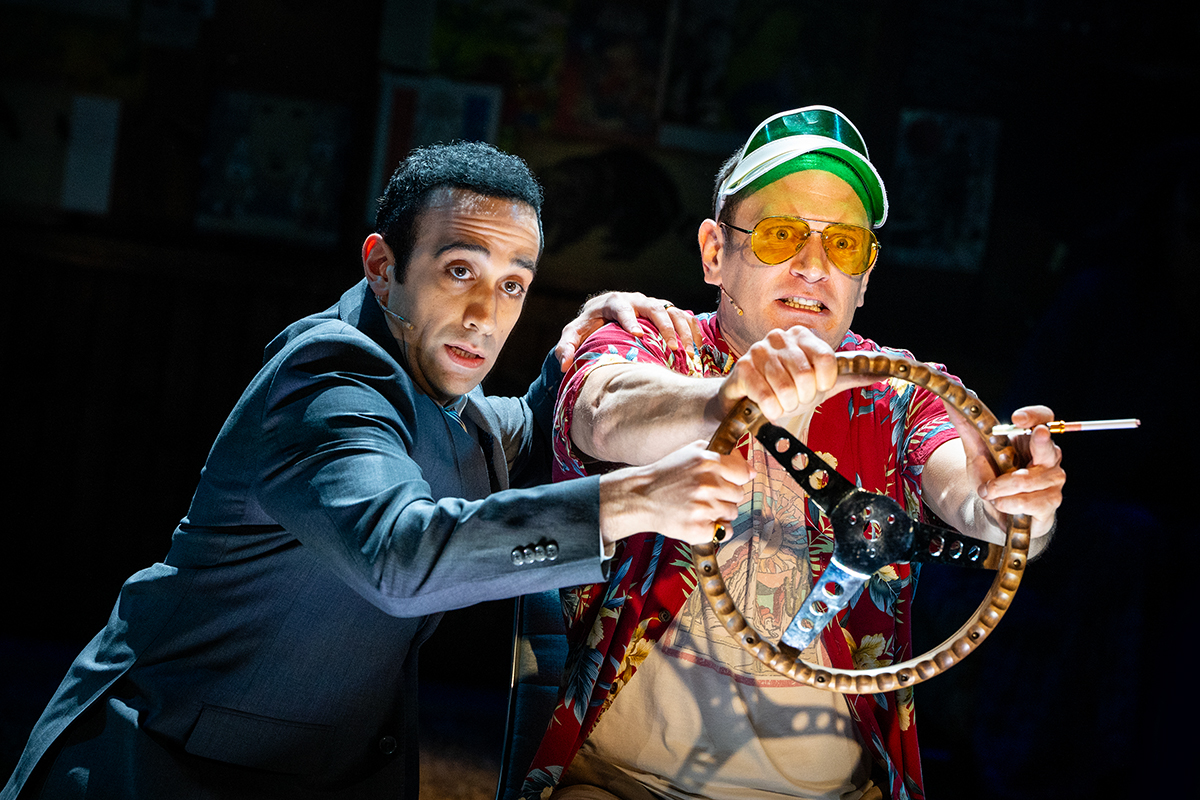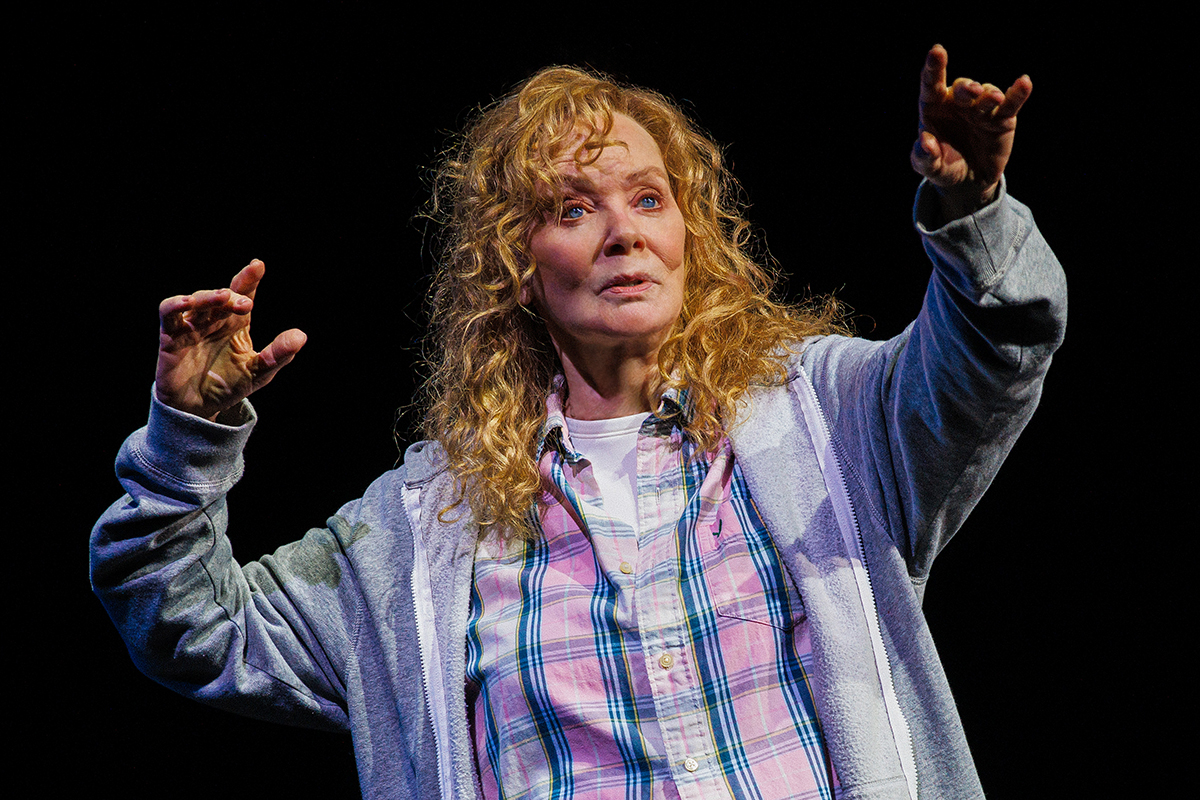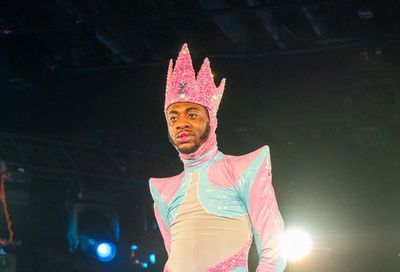Porgy and Bess Soars at Kennedy Center
The Washington National Opera’s stirring revival of George Gershwin's classic highlights the power of community and voice.

If there is one opera lost or won by its chorus and characters, it’s George Gershwin’s Porgy and Bess. In this perfect storm of a story, it’s all about the tight-knit fishing community that cradles, carries, and sometimes condemns its own. It’s only if you believe in their hardscrabble lives and insistence on dignity that you feel what it means to lose them. In this respect, the Washington National Opera’s Porgy and Bess absolutely nails it.
Of course, it starts with the vision of director Francesca Zambello and her talent for bringing intimacy to grand themes. Here, those themes run the gamut of ill-fated love: Porgy’s tragic devotion, Bess’ addiction to the dangerous Crown, and the reality that no union can outrun death.
Each gets its due with Zambello’s signature cohesion and clarity. But so do wider themes (surprisingly prescient for an opera written in 1935) such as the role of religion and the steady incursion of modern life — from so-called “Happy Dust” to the call of city life. Zambello’s magic is that nothing feels intrusive and yet she delivers it all.
Creating the sense of a living, breathing community is no small feat and the chorus must move between suggesting everyday life to amassing into formidable emotional and vocal forces. It’s a delicate balance — allow in even a whisper of musical theater fiddle-faddle and the game is up.
Zambello and choreographer Eric Sean Fogel get it wholly right, keeping the mime and movement of the chorus nicely understated and then, when the moment calls, gathering them to power so subtlety it feels like a sleight of hand. One minute they are busy about their lives and the next they have lined the stairs behind matriarch Marie, poured into the space for a funeral or a storm, or suddenly disappeared behind their ragtag doors.

This careful orchestration is matched by the chorus’ command of the score — from every momentous heave of their unified voices, to the single cries rising from the many, they create an extraordinary tapestry of sound. Doing them justice are the sharp lines of scenic designer Peter J. Davison’s Catfish Row and lighting designer Mark McCullough’s suggestion of the Carolina skies.
When it comes to the leads, there is much to savor. Soprano Brittany Renee is a formidable Bess — so much so that she doesn’t quite convince when it comes to her complicated chemistry with Crown or her weakness for Happy Dust. It feels, at times, as if this woman might scoff and walk away. Still, Renee sings Bess’ heartache with a soaring and expressive fulsomeness.
As the ill-fated Porgy, bass-baritone Michael Sumuel digs in, playing it as large, searching, and quietly stricken as it needs to be and singing with earthy power. Bass Kenneth Kellogg is a spectacular Crown, offering a big presence and singing with sonorous menace.
Even with these strong leads, three other performances truly light the night. As Maria, mezzo-soprano Denyce Graves (strikingly costumed by Paul Tazewell) brings just the right emphasis to her charismatic keeper of the community’s moral flame and sings with a gorgeously textured tone.
Also beautifully drawn, Chauncey Packer’s Sportin’ Life is the most dangerous kind of Devil: the one full of wit and charm. He uses his clear and attractive tenor to great effect, bringing a modern inflection that really sparkles.
Soprano Amber R. Monroe is a convincing Serena, full of warmth and energy, and when the times comes, her magnificently sung “My Man’s Gone Now” is devastating. A mention must be made of Viviana Goodwin, who offers a nicely genuine Clara and a slightly tentative but nevertheless charming “Summertime.”
This is an opera packed with crowd-pleasers and a production that fully delivers, much aided by the exciting choices of conductor Kwamé Ryan. And for those who celebrate Porgy and Bess as a truly great American opera, rest assured that for Zambello it’s never about getting from one toe-tapper to the next — it’s about bringing fresh eyes and intellect to an enduring portrait of love and loss.
Porgy and Bess (★★★★★) runs through May 31 at the Kennedy Center Opera House. Tickets range from $45 to $299. Call 202-467-4600 or visit www.kennedy-center.org.
Support Metro Weekly’s Journalism
These are challenging times for news organizations. And yet it’s crucial we stay active and provide vital resources and information to both our local readers and the world. So won’t you please take a moment and consider supporting Metro Weekly with a membership? For as little as $5 a month, you can help ensure Metro Weekly magazine and MetroWeekly.com remain free, viable resources as we provide the best, most diverse, culturally-resonant LGBTQ coverage in both the D.C. region and around the world. Memberships come with exclusive perks and discounts, your own personal digital delivery of each week’s magazine (and an archive), access to our Member's Lounge when it launches this fall, and exclusive members-only items like Metro Weekly Membership Mugs and Tote Bags! Check out all our membership levels here and please join us today!



























You must be logged in to post a comment.